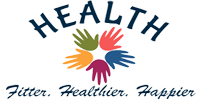
Eggs , the staple breakfast food since time immemorial have always been a comeback but are a regular in any home and in any part of the world. It’s true that egg yolks have a lot of cholesterol—and so may weakly affect blood cholesterol levels—eggs also contain nutrients that may help lower the risk for heart disease, including protein, vitamins B12 and D, riboflavin, and folate.
Research shows that for most people, cholesterol in food has a much smaller effect on blood levels of total cholesterol and harmful LDL cholesterol than does the mix of fats in the diet. Recent research has shown that moderate egg consumption—up to one a day—does not increase heart disease risk in healthy individuals and can be part of a healthy diet. Well that’s good news!
People who have difficulty controlling their total and LDL cholesterol may want to be cautious about eating egg yolks and instead choose foods made with egg whites. The same is true for people with diabetes. In the Nurses’ Health Study and Health Professionals Follow-up Study, heart disease risk was increased among men and women with diabetes who ate one or more eggs a day. For people who have diabetes and heart disease, it is best to limit egg consumption to no more than three yolks per week.
This research doesn’t give the green light to daily three-egg omelettes. While a 2008 report from the ongoing Physicians’ Health Study supports the idea that eating an egg a day is generally safe for the heart, it also suggests that going much beyond that could increase the risk for heart failure later in life. To your cardiovascular system, scrambled eggs, salad, and a whole wheat bread toast is a healthier option than having scrambled eggs with cheese, sausages, home fries, and white bread.The Key to health is eat in moderation.
Source:Harvard School of Public Health









.webp)